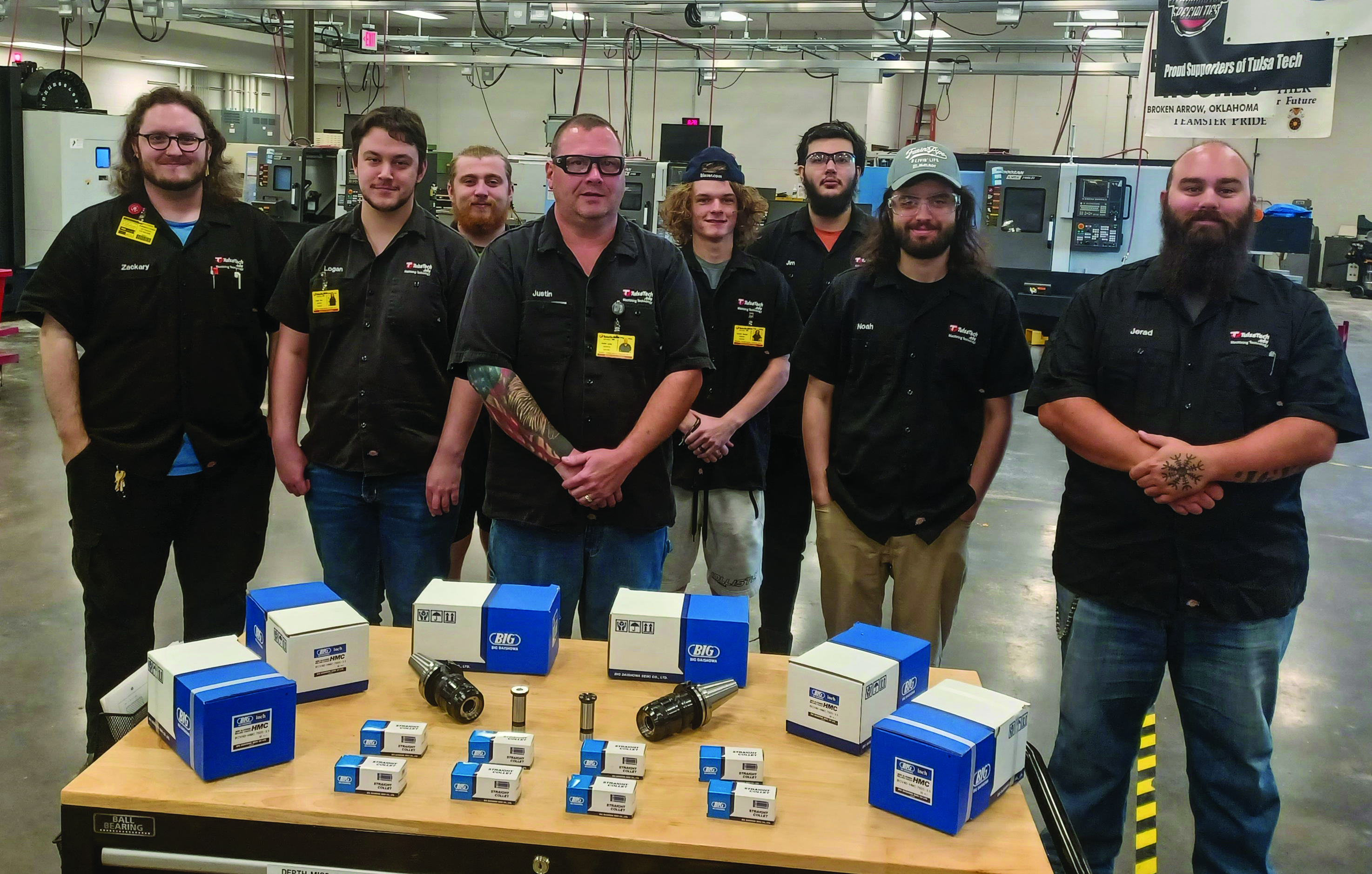
For the second year in a row, customers that purchase cutting tools, toolholders and workholding products from Big Daishowa will support local manufacturing training programs at the same time.
From October 1–December 29, 2023, Big Daishowa will donate a tooling certificate valued at 20 percent of every qualifying order to the buyer’s school of choice through the Tools for Schools program. Schools can redeem certificates for any Big Daishowa products, including best-in-class tool holders, boring tools, cutting tools, workholding products and presetters.
During last year’s program, Big Daishowa issued nearly $30,000 in tooling certificates to high schools, vocational schools, colleges and universities. According to Jack Burley, President/COO of Big Daishowa, it’s all in line with the company’s overall mission to support a new generation of skilled workers.
“We are committed to workforce development. This program allows our customers to support local communities by providing their future workforce with the same tools they use in their shops,” said Burley.
To participate in the program:
- The qualifying minimum order is $5,000 (earning a $1,000 tooling certificate).
- Place the order through your local distributor and request “Drop-ship from Big Daishowa.”
- Reference “PROMO-BD-SCHOOLS” as a line item on your order.
Burley said that every dollar spent helps students develop skills they can apply in their careers. “By using Big Daishowa tooling in school, students gain experience with the same tools they will use as future engineers and machinists.”
Big Daishowa offers nine product lines of precision tooling, workholding, and tool management systems aimed at reducing both the overall process time and the cost per part.
Popular products include face mill holders, end mill holders, collet chucks, angle heads and tapping adaptors. The world-leading Kaiser Boring System, high-performance Sphinx Drills and Unilock Workholding systems are also available, as are CAT, BT, HSK and BIG Capto systems.
If your machine is equipped with a Big-Plus spindle, remember that Big Daishowa is the officially licensed provider of Big-Plus tool holders in North America.
Contact Details
Related Glossary Terms
- boring
boring
Enlarging a hole that already has been drilled or cored. Generally, it is an operation of truing the previously drilled hole with a single-point, lathe-type tool. Boring is essentially internal turning, in that usually a single-point cutting tool forms the internal shape. Some tools are available with two cutting edges to balance cutting forces.
- collet
collet
Flexible-sided device that secures a tool or workpiece. Similar in function to a chuck, but can accommodate only a narrow size range. Typically provides greater gripping force and precision than a chuck. See chuck.
- milling machine ( mill)
milling machine ( mill)
Runs endmills and arbor-mounted milling cutters. Features include a head with a spindle that drives the cutters; a column, knee and table that provide motion in the three Cartesian axes; and a base that supports the components and houses the cutting-fluid pump and reservoir. The work is mounted on the table and fed into the rotating cutter or endmill to accomplish the milling steps; vertical milling machines also feed endmills into the work by means of a spindle-mounted quill. Models range from small manual machines to big bed-type and duplex mills. All take one of three basic forms: vertical, horizontal or convertible horizontal/vertical. Vertical machines may be knee-type (the table is mounted on a knee that can be elevated) or bed-type (the table is securely supported and only moves horizontally). In general, horizontal machines are bigger and more powerful, while vertical machines are lighter but more versatile and easier to set up and operate.
- tapping
tapping
Machining operation in which a tap, with teeth on its periphery, cuts internal threads in a predrilled hole having a smaller diameter than the tap diameter. Threads are formed by a combined rotary and axial-relative motion between tap and workpiece. See tap.








